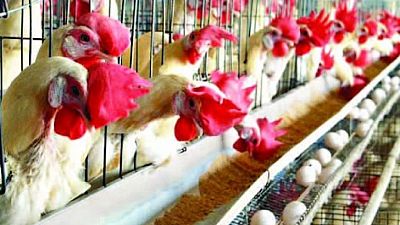Agriculture
Following an outbreak of the New Castle disease in Namibia on July this year, the country’s Agriculture Ministry has banned movement and trading of live birds in the country.
The Ministry confirmed that the contagious bird disease that is transmissible to humans, had been spreading in three regions, Oshana, Ohangwena and Oshikoto, in the north of the country.
This is not the first time New Castle disease is being reported in Namibia, but the magnitude of the current outbreak has not been seen in the country for a long period.
“In light of this, movement and trading of live birds, chickens, ducks, ostriches, guinea fowls, caged birds, pigeons and doves has been banned with immediate effect,”the Ministry said in a statement.
Also banned with immediate effect is the movement of uncooked eggs and feathers from neighbouring countries that border the northern regions of the country.
Farmers in the affected regions have been urged to visit their nearest state veterinary office for New Castle disease vaccines.
Although the notice said commercial poultry farmers should have sound vaccination programmes and bio-security in place, ostrich farmers were advised not to do so without consulting veterinary offices.
Namibia bans live birds trade to contain New Castle disease outbreak https://t.co/mLCbhNiaQ5 pic.twitter.com/qJfkLRW8H2
— CCTV Africa (@cctvnewsafrica) October 24, 2016
“The public is hereby advised not to consume poultry that died from this disease or any other disease but to report such incidences to the nearest state veterinary offices,” the notice said, adding that such poultry should be burnt.












00:53
Brazil eyes global food leadership amid U.S.-China trade tensions
Go to video
Oligui Nguema: A breakthrough or continuity for Gabon? [Business Africa]
01:02
First payments made to white farmers affected by land reforms in Zimbabwe
Go to video
A booming market, but lacking data: Africa's challenge [Business Africa]
01:54
Uganda: the infiltration of plastics into agricultural fields and food raise concern
Go to video
The Okwelians: Unlocking New Economic Paths for Cameroon [Business Africa]